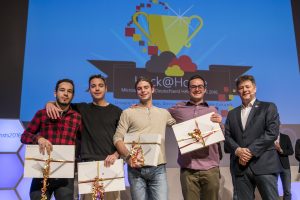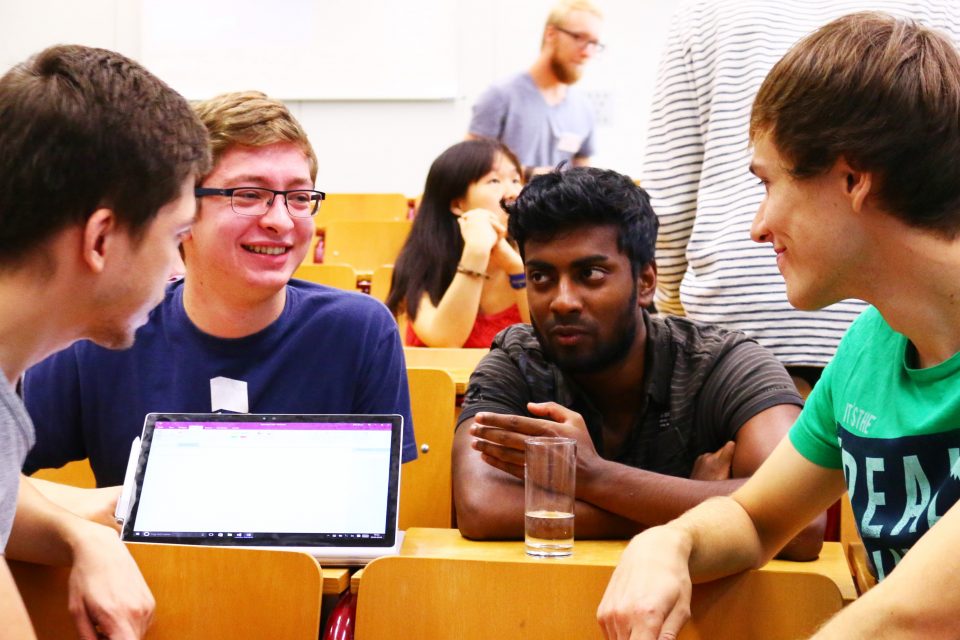Three incredible projects have been crowned winners of Microsoft Germany’s student competition, Hack@Home!
More than 200 students took in the competition, which challenges students to build sustainable solutions for German companies using Microsoft Cloud Germany services. The applications must help the businesses to digital transform and increase their productivity, while also ensuring their sensitive company data is kept secure.
The competition was supported by sponsors from the industry, including Audi, Bundesdruckerei, Daimler, German Bank, German Telekom, EnBW, and ThyssenKrupp. The students were challenged to develop solutions to the very specific challenges these companies face, such as improving safety on construction sites and monitoring production robots.
The winning three projects were announced at the Technical Summit 2016, the largest Microsoft conference for developers and IT professionals held in Darmstadt, Germany. The winners included teams from the University of Stuttgart, Karlsruhe Institute of Technology, and the University of Hannover.
Team Blubb, from Stuttgart University, built a web application called RoboDash to help Daimler visualise sensor data collected from production robots. The application minimizes unexpected maintenance by detecting errors and failures in the robots early on. Large numbers of robots can be monitored at the same time, and the application can also be easily pulled up on multiple terminals by different employees.
Thomas Stark, Head of Innovation & Trends Industry 4.0, Daimler, said “We employ more than 20,000 industrial robots, and Blubb’s solution will increase the transparency of our robots now and in the future.”

Team Dex, from the Karlsruhe Institute of Technology, also won with their Decentralised Energy Exchange project. Supported by EnBW, a German utilities company, the Exchange project uses blockchain technology to securely match customers with their most suitable energy provider. With this information at their fingertips, customers are provided with the most flexible and cost-efficient energy service.
Another winning project came from the University of Hannover, where Team Foodstep developed the Bundesdruckerei application to track production chains in the food industry. The application tracks individual products from production to the supermarket shelf, including all meta data on transport route and storage time. For conscious shoppers, the final result is the ultimate seal of accountability, freshness, and quality.
Dr. Kim Nguyen, CEO of D-Trust, a German security system company working with manufacturer Bundesdruckerei Group, said, “As the Bundesdruckerei Group is already working on precisely such applications, the Hannover project is ideally suited to us.”
The winning teams received a a €2000 voucher for the Microsoft Store, as well as one-year free access to Microsoft Cloud Germany Azure services to further develop their projects.
“With Microsoft Cloud Germany, we enable companies of all sizes and industries to leverage the power of intelligence public cloud services,” said Sabine Bendiek, Managing Director, Microsoft Germany. “The students’ inspiring projects use Big Data, Machine Learning, and the Internet of Things to show how this can look in a very creative way.”
Read more about the Hack@Home competition here.




